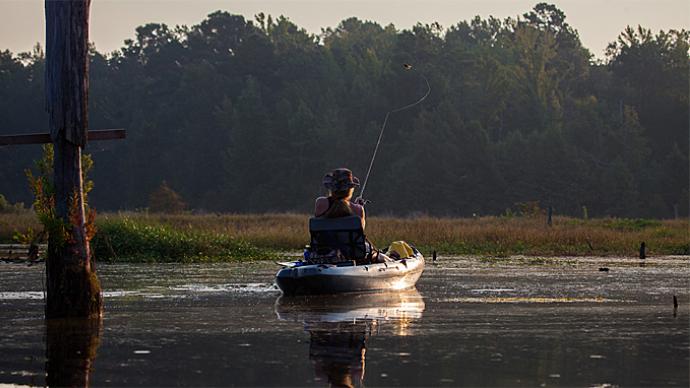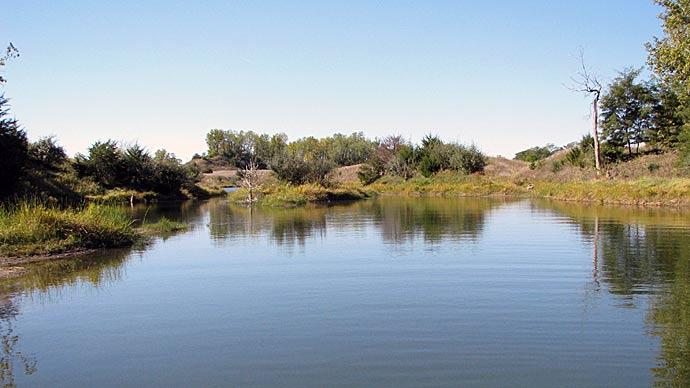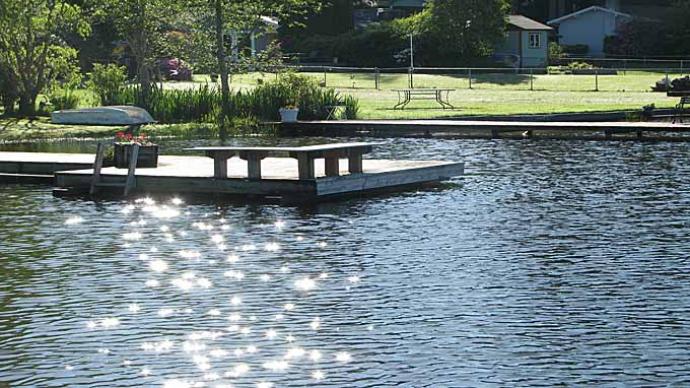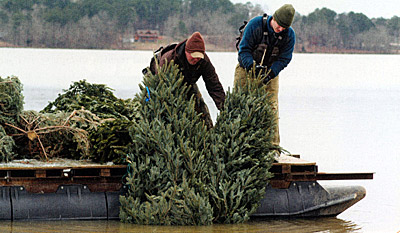
Pond Boss magazine is a great source of information and advice for many pond issues, but sometimes pondmeisters need more hands-on or individualized assistance or services. Maybe you need someone to help treat weeds with herbicide or apply a fish toxicant, or you need advice on constructing a new pond, or perhaps you just want someone to take a look at and tell you what the heck's wrong with your pond!
To make things more complicated, there is an abundance of advice and opinions available online that may or may not be correct. You could Google your question, but you will be overwhelmed with thousands of pages of information, some of which has not been validated with science. In this edition of Empirically Speaking, we'll try to simplify your best options for pond advice and assistance.
The number one rule for sourcing pond management advice is to use a trained and experienced professional. I shudder every time a pond owner says, "Well, my neighbor said I should..." Maybe your neighbor got their information from a reputable source and maybe they didn't, but every pond situation is a little different and a solution to a particular problem in one pond is not necessarily the solution to the same problem in a different pond. For example, suppose you have a problem with hydrilla. Your neighbor used the herbicide fluridone to eliminate hydrilla from his pond, but your pond has a large spring in it that flushes the pond completely every couple of weeks. Following your neighbor's advice, you apply fluridone to your pond, but it is flushed out before it has time to work. Your neighbor just wasted $1,000 of your money!
There are four main entities I would call "trained and experienced professionals," which can be classified as either public or private. I am sure there are others, but these four are the main players in pond management. Let's talk public options first.
Most states have three public agencies that regularly provide pond assistance. These are the Cooperative Extension Service (Extension), the Natural Resources Conservation Service (NRCS), and state fish and game agencies. All three are excellent sources for free pond advice. Normally, all three will try to answer your questions by phone or by email if possible, but most will make site visits if necessary. The degree to which these agencies will provide hands-on services varies by agency and by state.
Extension primarily provides information on how to deal with pond management issues. There is usually an Extension agent stationed in each county that you can call, email, or visit directly. County Extension agents can provide some advice and have access to pond guides and other literature that can be provided, usually free of charge. These agents will also make site visits as necessary, and help with submission of soil and water samples, weed identification and treatment, and other simple tasks. County Extension agents rarely have formal training in pond management, so they will likely defer more complicated issues to a state fisheries specialist or other trained fisheries biologist. Extension does not usually provide services such as pond sampling or weed treatment, and advice is usually verbal or via letter or email; that is, Extension does not typically develop detailed management plans.
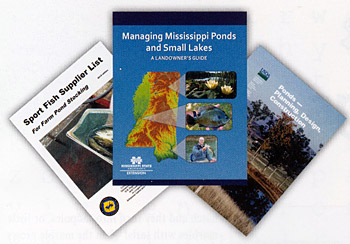
The Natural Resources Conservation Service, or NRCS, is a large federal agency that has personnel from many different fields. They have access to biologists, hydrologists, and structural engineers that can benefit small ponds and lakes. There is usually an NRCS agent that offers services free of charge stationed in every county. Like county Extension agents, the local NRCS agent may not be trained in fisheries, but they will know who to call and can build a team to help. NRCS is the public authority on building new ponds, and they will provide assistance with site selection, soil testing, levee engineering, and getting the ratio of pond size to watershed size correct. They can also help with obtaining the proper construction and operating permits, if required, and will know if the pond will qualify for any construction subsidies or tax incentives. NRCS will not usually provide a detailed management plan or provide management services.
Most state game and fish agencies are primarily responsible for management of fish species in public waters, but may provide assistance and some services in private waters. State agencies normally have regions within the state that have an assigned fisheries biologist responsible for that region. Most will answer pond questions over the phone or email, and many will make site visits if necessary. Some states offer fish sampling for private landowners, but there is an application process and some fees may apply. Usually time is the limiting factor, as the biologist has other responsibilities and it takes a lot of time to electrofish a pond. There are still a handful of states that provide fish for stocking private ponds, but that practice is slowly disappearing. State agencies generally shy away from offering other pond management services.
If you want someone to actually do the management, you need to call a private consultant. As a rule, the public sector provides advice and solutions, but really doesn't provide many hands-on services. Of course private consultants also provide advice over the phone or email, usually free of charge. And certainly don't forget about the Pond Boss Forum, which is a great place to ask questions! But the real strength of the private sector is that they can manage your pond for you.
Private consulting firms make a business out of doing what they love—managing private waters! They may offer a range of services, such as pond construction and management, sport fish supply and stocking, and fisheries and habitat management. These services are not free and may range in cost depending on the time, people, and resources required. You can shop around, but remember that pond consultants are not created equal, and the cheapest option is not necessarily the best option.
If you decide to hire a private consultant, you will want to know that you are in good hands. Ask lots of questions! For example, ask how many years of experience they have. An experienced consultant will have dealt with more unusual issues and solutions than someone just starting out. Ask them about their training. Hopefully they or some of their staff have formal fisheries training. And ask about liability insurance, just in case the unexpected occurs. Certainly ask for references—a good consultant has lots of happy customers!
Make sure you get details on the services being provided. How will they survey the pond, and what type of report will be provided? At the very least you should expect a management evaluation with recommendations. Ask if they can implement the recommendations as part of the management. If their advice is always "stock more fish," you may want to seek a second opinion. And of course make sure you understand how their fees are charged. They may charge by the job or by the hour, so make sure to get an estimate in writing before work begins.
Whether you decide to go the free advice, do-it-yourself route, or if you choose to pay for management services, you can rest assured that there is a wealth of experienced people available to help you get the pond of your dreams. But, make sure before you call anyone, that you know what that dream looks like. Know what your pond management objective is and be able to explain it. Maybe it is a trophy bass fishery with an occasional bass over 12 pounds, or maybe you want to fly fish for big hybrid striped bass. Whatever your goal or goals may be, no one can put you on the right path if you can't tell them where you want to go.
Reprinted with permission from Pond Boss Magazine

